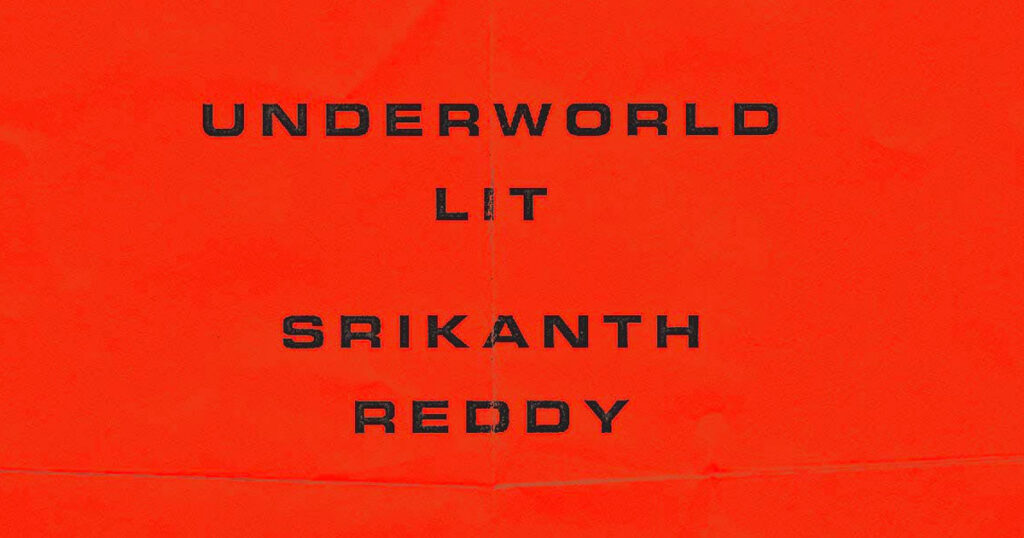
That there is a crisis in the humanities will be news to no one in American higher education. Diagnoses, defenses, and remedies have been so commonplace in writing about the subject, for so long, that this crisis, even to those in the midst of it, can feel like a steady state, just business as usual. Still, with the tenure-track job market drying up like a once life-giving river now parched by climate change, the tone has grown darker. In January, The New York Times ran an op-ed titled “The Apocalypse of the Academy.” And that was before Covid-19 turned everyone lucky enough to have a laptop and decent broadband into a headshot on Zoom. My computer keeps telling me: “Your connection is unstable.”
The precarious condition of the humanities is one of the through-lines in Srikanth Reddy’s Underworld Lit, a book-length prose poem that appears just as the new, uncharted academic year gets under way. The book itself is divided into fall, winter, and spring terms, with a summer coda. The unnamed narrator is a college instructor of uncertain prospects who is in charge of a world literature class called Introduction to the Underworld. His students “are all over the map,” with “some in headscarves, some occasionally dressed in fatigues.” Subject to distraction, like the rest of us, he doomscrolls through the names of Iraqi citizens killed in the War on Terror conducted in their country. Desperate to find any sort of job posting, he googles American universities from Nigeria to Phnom Penh (no results).
Meanwhile, the reader sees him at home with his wife and young daughter, Mira. He is dealing with a cancer diagnosis that seems like the private expression of a universal malignancy. Intertwined with these plots is his translation of a French translation of a Chinese text narrating a journey to the underworld. The book is part academic satire, part autofiction, part Borgesian fantasia. The selections from it printed here, which are presented out of sequence, come from the academic satire and autofiction strands.
Facing the threat of unemployment, not to mention his own mortality, the narrator is suffering from that ordinary thing: a midlife crisis. Like the crisis of the humanities, his personal crisis does not seem so significant when, as Reddy has commented recently, “everybody in the world is now neck-deep in a global, local, and personal crisis of their own.” But perhaps, Reddy speculates, a midlife crisis illuminates the nature of “crisis itself, on all of its various scales, as something that doesn’t necessarily feel like it has a beginning or end, only a middle. That’s why the first line of Dante’s Inferno always feels so timeless to me: ‘In the middle of life I found myself lost in a forest of shadows.’ ”
The Italian poet’s famous first line turns up, by accident, in one of the papers Reddy’s instructor is grading: “I lost in a dark would.” “Good effort,” he praises the student reflexively, then sends her to the “ESL lab, ASAP.” If only that were the solution: a language lab where we all could go for directions out of our dark wood.

